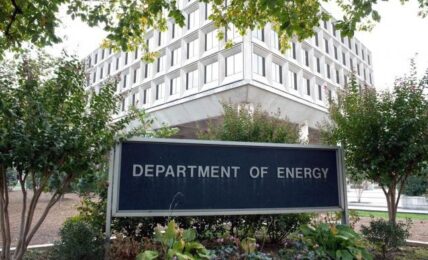Only 12% of green or environmental investment funds – and an even smaller proportion of climate-focused funds – are on track to meet global climate goals as described under the Paris Agreement, according to a new report from S&P Global Sustainable1.
The Paris Agreement is a multi-nation pact developed by parties to the United Nations Framework Convention on Climate Change (UNFCCC) to combat climate change. The agreement’s main goal is to limit the global temperature increase in this century to well below 2°C above pre-industrial levels, and to work toward limiting the increase to 1.5°C.
For the report, S&P investigated a universe of nearly 12,000 equity mutual funds and ETFs, representing over $20 trillion of market value. Within that universe, approximately 300 funds representing over $350 billion in market value were identified that use green or environmental language in their names or investment objectives. Additionally, a smaller subset of 51 climate-focused funds with over $30 billion in market value were identified.
For the analysis, the study overlaid S&P Global Trucost Paris Alignment data for over 17,000 companies held by the funds, which included summing up historical Scope 1 and 2 emissions beginning in 2012, and forecast emissions through 2025, and comparing those trends with different temperature scenarios based on decarbonization trajectories.
The analysis found that of the 12,000 funds studied, only 11% were aligned with the Paris Agreement’s “well below 2°C” scenario. For the green or environmental funds, results on this front were not much different, with only 12% assessed as being on track for the Paris goals. An even smaller proportion of the climate funds, less than 10% were assessed as Paris-aligned.
The green and climate-focused funds performed slightly better in other categories, with around two-thirds of each assessed as on track to limit warming to 3°C, compared to only around half of the broader universe. However, this also implies that a third of climate funds are currently on track to overshoot 3°C.
S&P noted that it did not seek to determine if the sustainability-focused funds were engaged in greenwashing or mislabeling, adding that few of the funds included Paris alignment as a goal, many apply screens to avoid investments in fossil fuels, and focus on areas including renewable energy and climate solutions, and some invest in emissions-heavy companies with a mandate to engage on decarbonization.
Nevertheless, the report indicates that environmental sustainability-focused funds are currently “widely over budget,” on their emissions reduction trajectories, “suggesting that many of their holdings are behind schedule in controlling their emissions and sourcing greener energy.”
The report adds:
“Our analysis points to a systemic issue — few funds, even those that describe themselves using green or climate-specific language, are on track to meet the goal of the Paris Agreement. Understanding the trajectory is an important step toward planning for a low-carbon future.”
Click here to access the S&P Global Sustainable1 report.
The post Less Than 10% of Climate Funds are Aligned with Global Decarbonization Goals: S&P appeared first on ESG Today.


